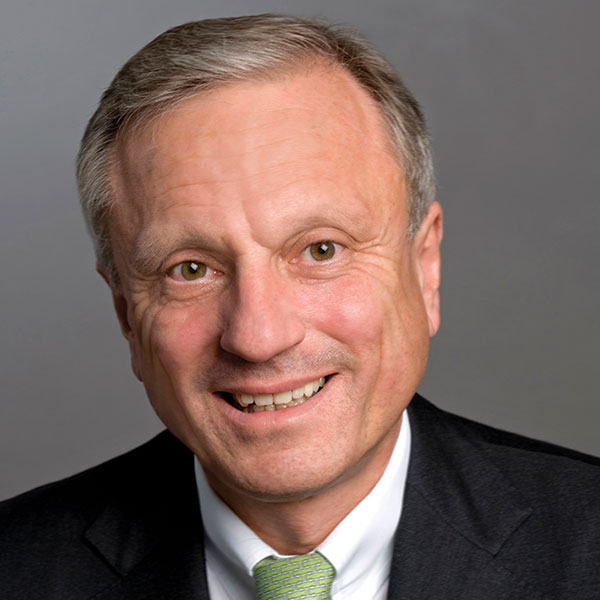G20 Executive Talk Series
September 2016
Climate Change
Authored by: Dr. Werner Brandt
Combatting Global
Climate Change
In April 2016, around 170 states officially signed the Paris Agreement in New York. Successful implementation of the agreement will rely – to a great extent – on the development of market mechanisms which have the capacity to significantly advance emission trading systems. It is now up to the G20 to move forward in the realization and implementation of the Agreement.
In order to reach the Paris Agreement, it was necessary to change the rules of the game. The new agreement does not focus on the common global goal, which was previously broken up and divided between parties and included clear reporting, verification and compliance mechanisms. Instead, states now present national contributions under the UN Framework Convention on Climate Change, measured against the global “well under 2 Degrees” target. However, based on national contributions received so far, it is predicted that we are heading towards a three degree increase. In the absence of appropriate international mechanisms which ensure mitigation efforts are implemented fairly, singular efforts will be rendered redundant.
Climate protection has been divided into individual national solutions, deviating from a global level playing field that could prevent carbon leakage and the shifting of energy intensive industries abroad. Crucial to this approach is that States develop mechanisms which sufficiently protect against carbon leakage whilst ensuring that this do not distort competition.
All the more significant is the effort of states in Paris to commit to the significant increase of the adaptation funding from current levels to the 100 billion dollars p.a. which had already been decided in Copenhagen. Another positive development is the possibility for states to cooperate with each other in the implementation of their national contributions to reducing greenhouse gas emissions following Article 6 of the agreement.
Global business organizations, such as the ICC, as well as other national business organizations have advocated for the so called “cooperative measures”. In the global context, it is more important to focus on how much carbon dioxide is being saved rather than in which region of the world it is being saved.
What tools are available for cooperation?
In the EU for example, the current revision of the EU Emissions Trading System provides the possibility of bringing back such international mechanisms – allowing industrialized states to implement a part of their reduction commitments abroad. International Mechanisms facilitate capacity building, technology transfer and investment opportunities in emerging markets, whilst providing flexibility for countries implementing commitment reductions. This cooperation creates a win-win situation for participating parties. As the EU is the potentially greatest demander of Carbon Emission certificates, this would significantly contribute to the financing of adaptation measures.
![]() CLIMATE PROTECTIONHAS BEEN DIVIDED INTO INDIVIDUAL NATIONAL SOLUTIONS, DEVIATING FROM A GLOBAL LEVEL PLAYING FIELD THAT COULD PREVENT CARBON LEAKAGE AND THE SHIFTING OF ENERGY INTENSIVE INDUSTRIES ABROAD. CRUCIAL TO THIS APPROACH IS THAT STATES DEVELOP MECHANISMS WHICH SUFFICIENTLY PROTECT AGAINST CARBON LEAKAGE WHILST ENSURING THAT THIS DO NOT DISTORT COMPETITION.
CLIMATE PROTECTIONHAS BEEN DIVIDED INTO INDIVIDUAL NATIONAL SOLUTIONS, DEVIATING FROM A GLOBAL LEVEL PLAYING FIELD THAT COULD PREVENT CARBON LEAKAGE AND THE SHIFTING OF ENERGY INTENSIVE INDUSTRIES ABROAD. CRUCIAL TO THIS APPROACH IS THAT STATES DEVELOP MECHANISMS WHICH SUFFICIENTLY PROTECT AGAINST CARBON LEAKAGE WHILST ENSURING THAT THIS DO NOT DISTORT COMPETITION.![]()
In order to actually advance climate protection and achieve the ambitious goal of carbon neutrality in the second half of the century, global solutions are indispensable.
It is pivotal for the success of the Paris Agreement that G20 places climate protection on its own agenda – and advocate for stronger international cooperation with other states.
A truly global level playing field, including all major trading nations, will only be achieved with greater international cooperation, cooperation that avoids falling back to unilateral measures which are harmful to international trade.

Dr. Werner Brandt is Chairman of ICC Germany, the national committee of the International Chamber of Commerce in Germany. He is Chairman of ProSiebenSat.1 Media AG and of RWE AG. From 2001 to 2014 he was member of the Executive Board and Global Managing Board of SAP AG and was the chief financial officer (CFO).